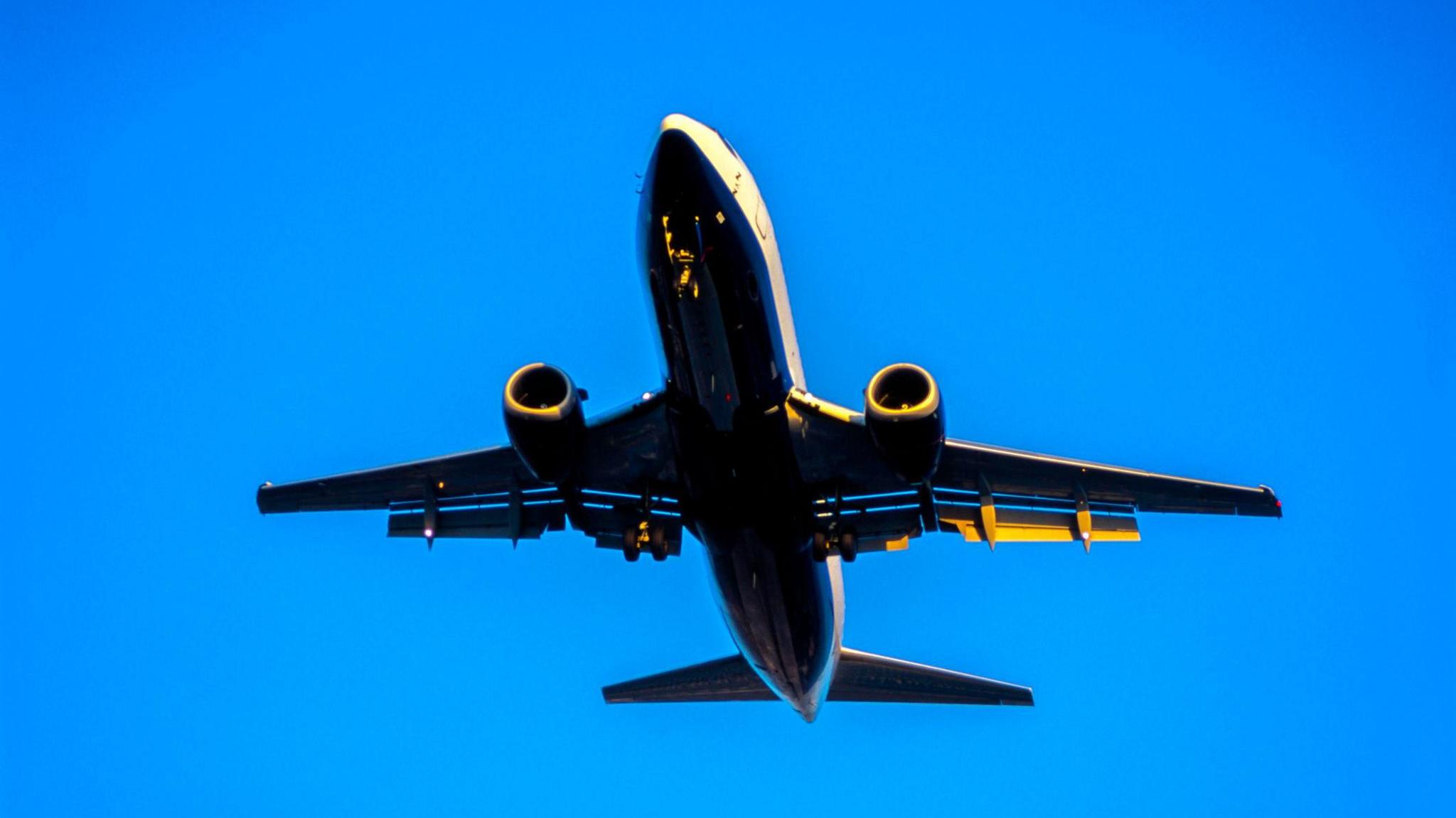Boeing to axe a tenth of its workers as strike continues

- Published
Boeing will axe its workforce by a tenth - cutting 17,000 jobs - and delay production as the aeroplane maker deals with issues across its business.
Chief executive Kelly Ortberg said in an email to staff that "executives, managers, and employees'" jobs are all at risk.
The business also warned of losses in its weapons and military equipment manufacturing arm, and pushed back the delivery date of its 777X plane.
The news comes as the business grapples with staff striking and mounting concerns around the quality of its planes.
Mr Ortberg said in the email that the company will reduce its headcount "over the coming months".
"Next week, your leadership team will share more tailored information about what this means for your organization," he said, adding that it will not proceed with the next cycle of furloughs.
"The state of our business and our future recovery require tough actions," said Mr Ortberg.
As well as cutting jobs, the company also is delaying production of its 777X due to "the challenges we have faced in development, as well as from the flight test pause and ongoing work stoppage", a possible reference to the ongoing strike that has been going on for several weeks.
"We have notified customers that we now expect first delivery in 2026," he said.
A month-long union strike at Boeing has grown contentious, as approximately 33,000 workers sought a better pay package.
Talks appeared to fall apart this week, and the union's lead negotiator, John Holden, told Reuters, "We're in this for the long haul and our members understand that."
The global credit ratings agency S&P has put Boeing on CreditWatch, a sign that they could downgrade the aeroplane manufacturer's rating if the strike drags out.
The company was already under congressional scrutiny after a January incident, during which a defect caused a panel to blow out on a Boeing 737-MAX jet shortly after takeoff.
No-one was injured, and Boeing’s then-chief executive Dave Calhoun said the company was "acknowledging our mistake".